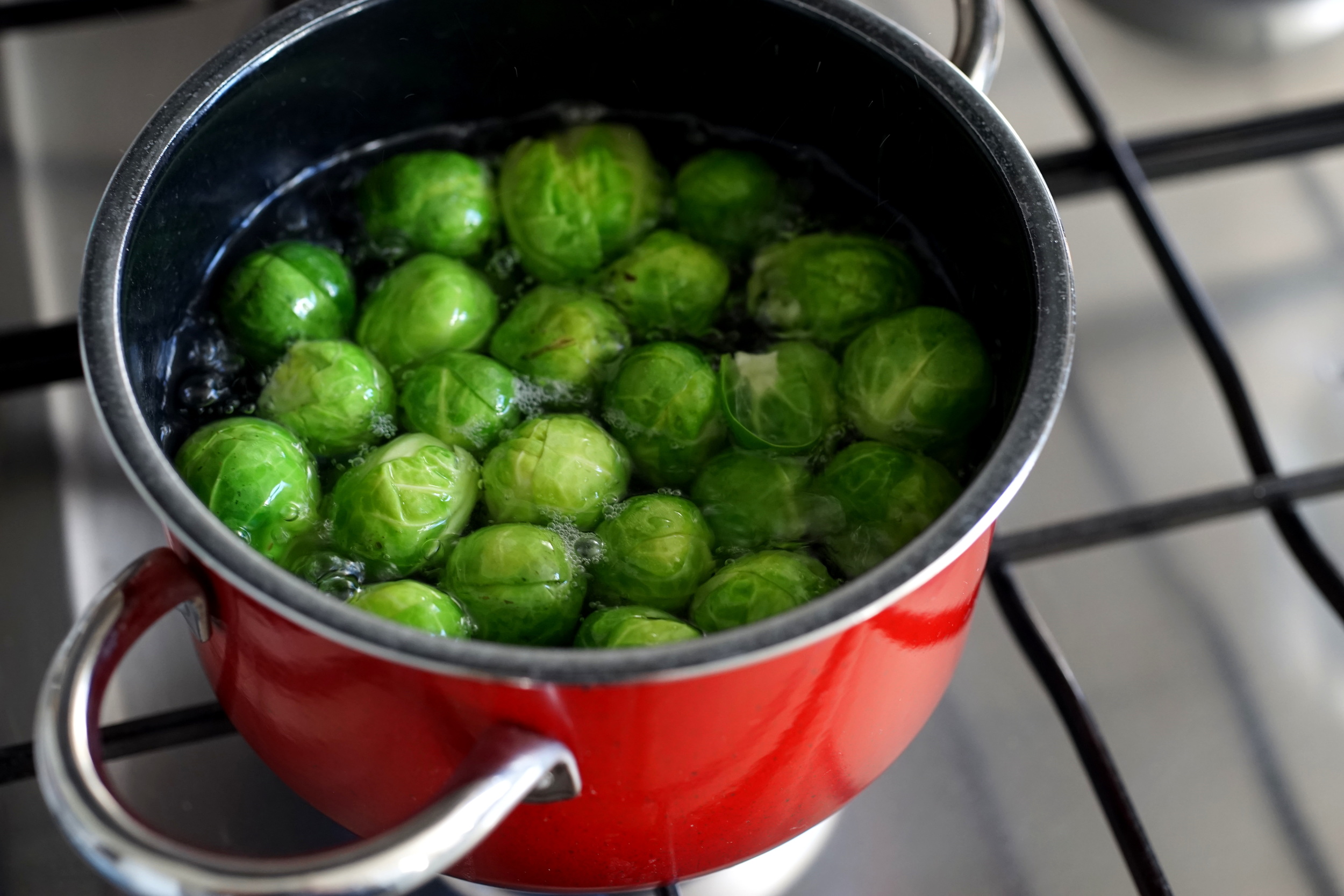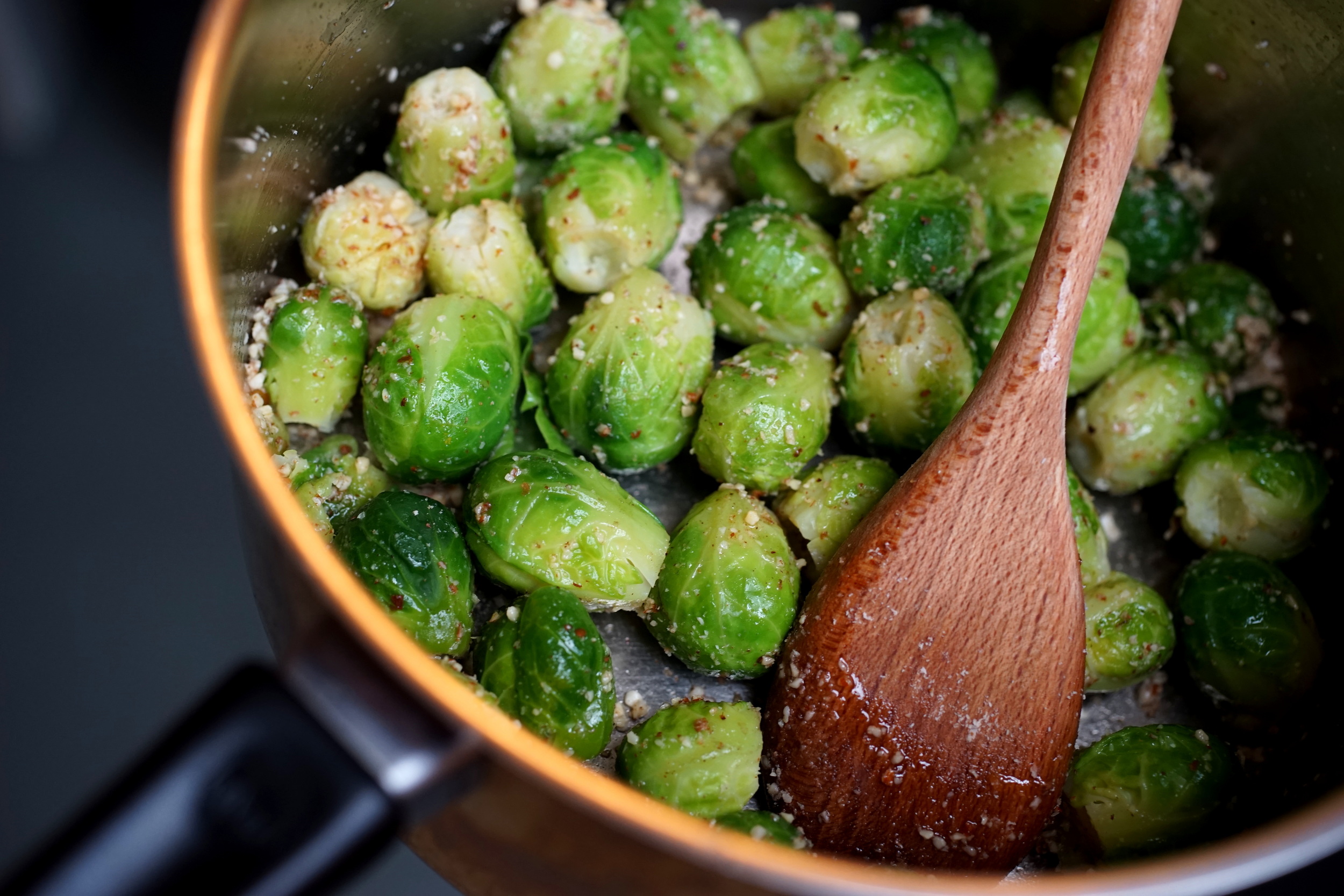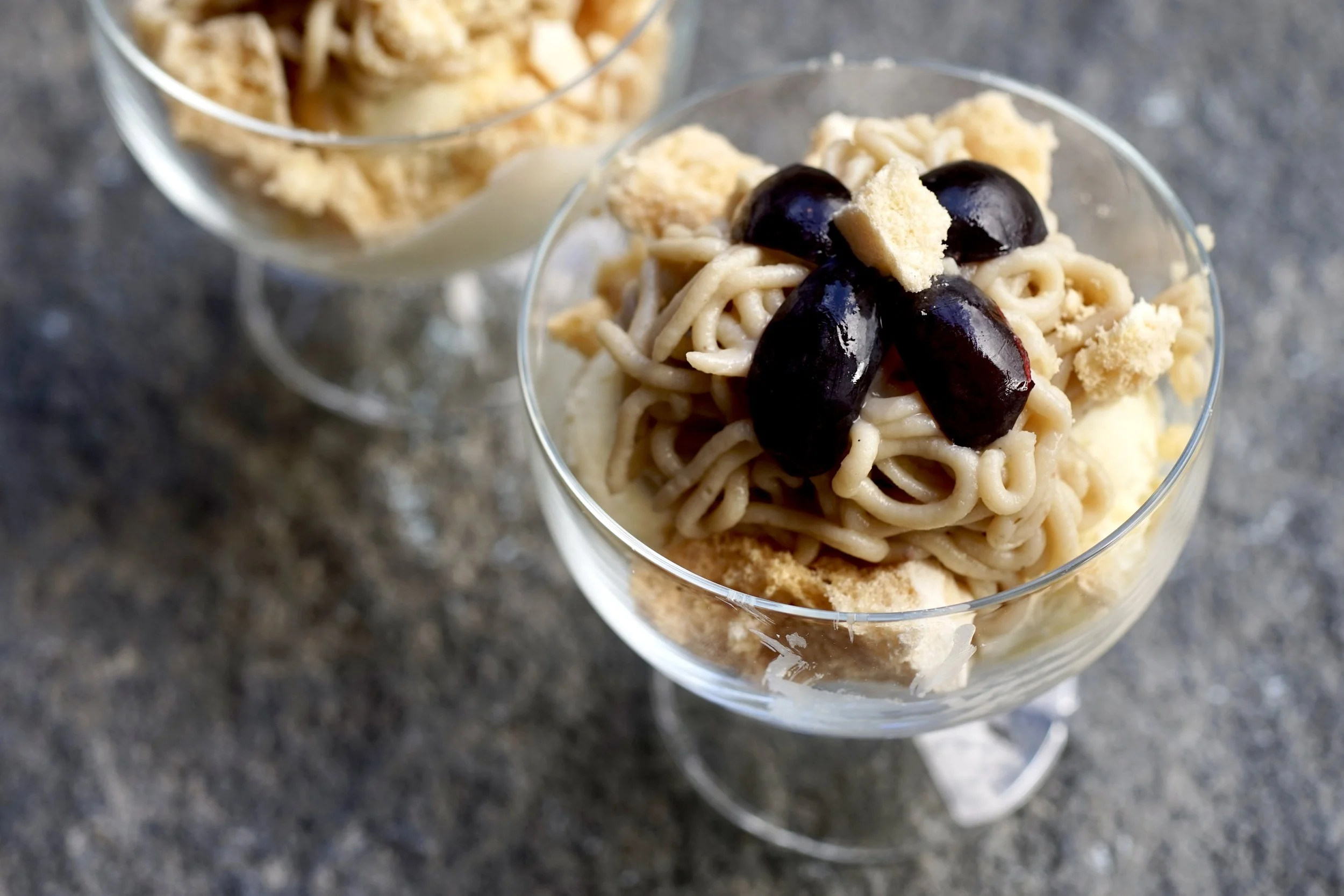Butter Nut Brussels
In German, the word for Brussels sprout is Rosenkohl. Rosen obviously describes the shape of them, roses, and the word Kohl denotes vegetables from the Brassica family.
As German is such an ordered language, often descriptive identifying words are added to Kohl to make logical names for vegetables. Some examples:
Blumen(flower)kohl = Cauliflower
Chinakohl = Bok Choy
Weiss(white)kohl = White cabbage
Rot(red)kohl = Red cabbage
Blatt(leafy)kohl = Collard Greens
Palmkohl = Cavolo Nero
Feder(feather)kohl = Swiss Chard (thanks to Richard, I'd forgotten this one.)
It doesn't work in every case, as broccoli is simply Broccoli in German. *Update: I have been corrected by the indefatigable Sam. Although Broccoli is the common nomenclature in German, there is a logical 'kohl' variant for it as well: Sprossen(sprout)kohl.
The English name, Brussels sprouts, is likely after the city of Brussels, Belgium. Production in Belgium may have begun earlier, but first written mention was in 1587, and they were brought to North America in the 19th Century. Now, The Netherlands is the top sprout grower in Europe, producing 82,000 metric tonnes per year. Germany isn't even a close second with 10,000 metric tonnes.
They are not just the required green at Thanksgiving and Christmas, but also are the brassica of choice on a Wild plate.
Brussels sprouts can be very bitter, but this can be avoided if they are prepared and cooked properly. By removing the base and outer leaves, cutting an 'X' into their stem and boiling them, the bitterness has a chance to wash out of the sprout.
These buttery brassica are improved with ground almonds and a swirl of butter.
500 g Brussels sprouts
50 g ground almonds
knob of butter
salt and pepper
Prepare the Brussels sprouts. Wash them, then carve out the base and remove the outermost leaves.
Use the tip of your knife to cut a small 'X' into the base of the sprout.
Bring a large pot of salted water to a boil. Prepare a large bowl of cold water next to the stove.
Throw the sprouts into the boiling water for about seven minutes. They should turn bright green. Then plunge them into the bowl of cold water.
Pour out the water and dry the large pot. Put the pot over medium heat and put the nuts directly in, toasting them lightly for a couple of minutes. Once they have started to brown, add the knob of butter. Cook this until the butter is spluttering.
Toss in the sprouts and cook for a few minutes, until they soften.
Add salt and pepper to taste.
When you are removing the stem, be careful that you don't carve too deep or all the leaves will fall off.
If the sprouts start to stick in the pan, just add a bit more butter and turn down the heat.
















